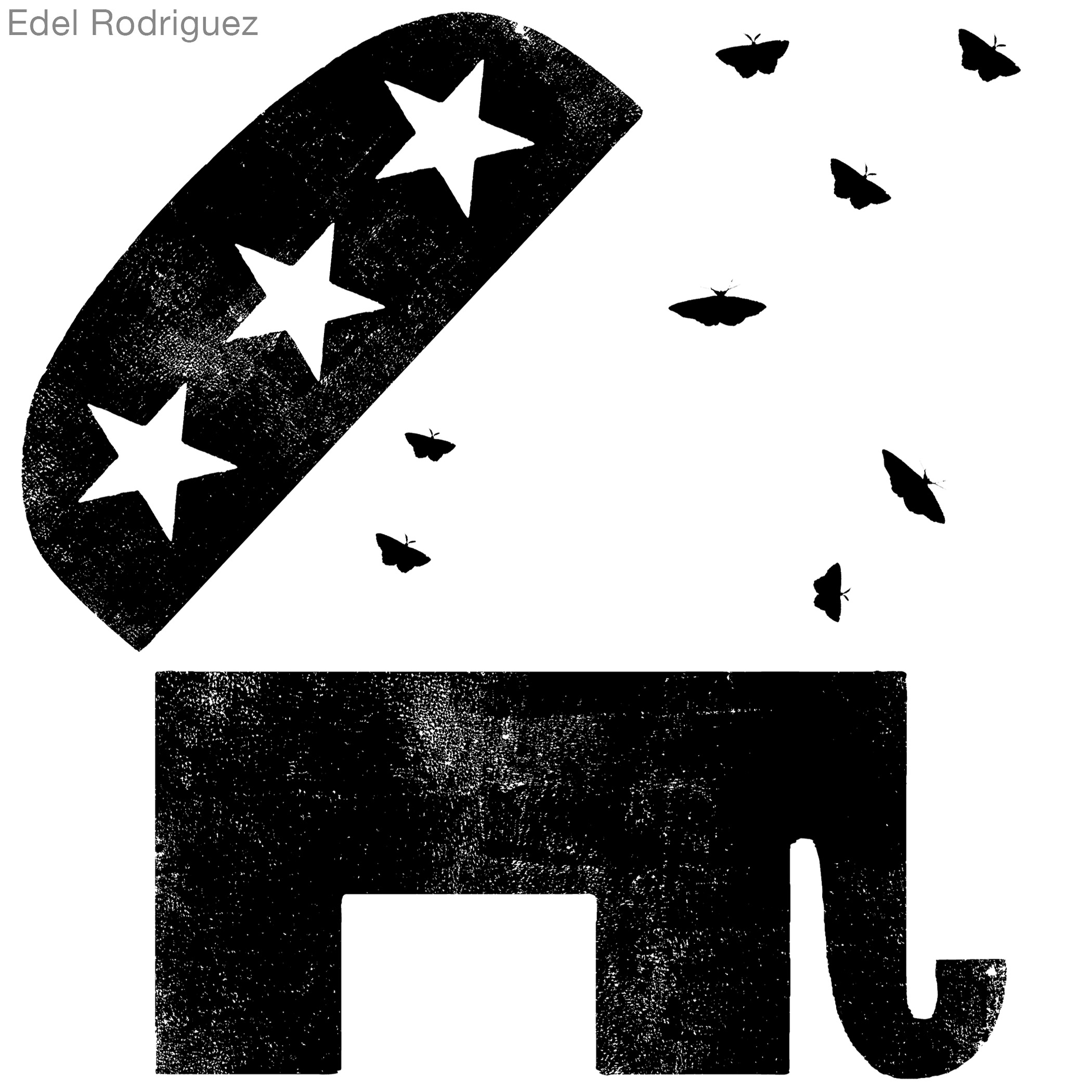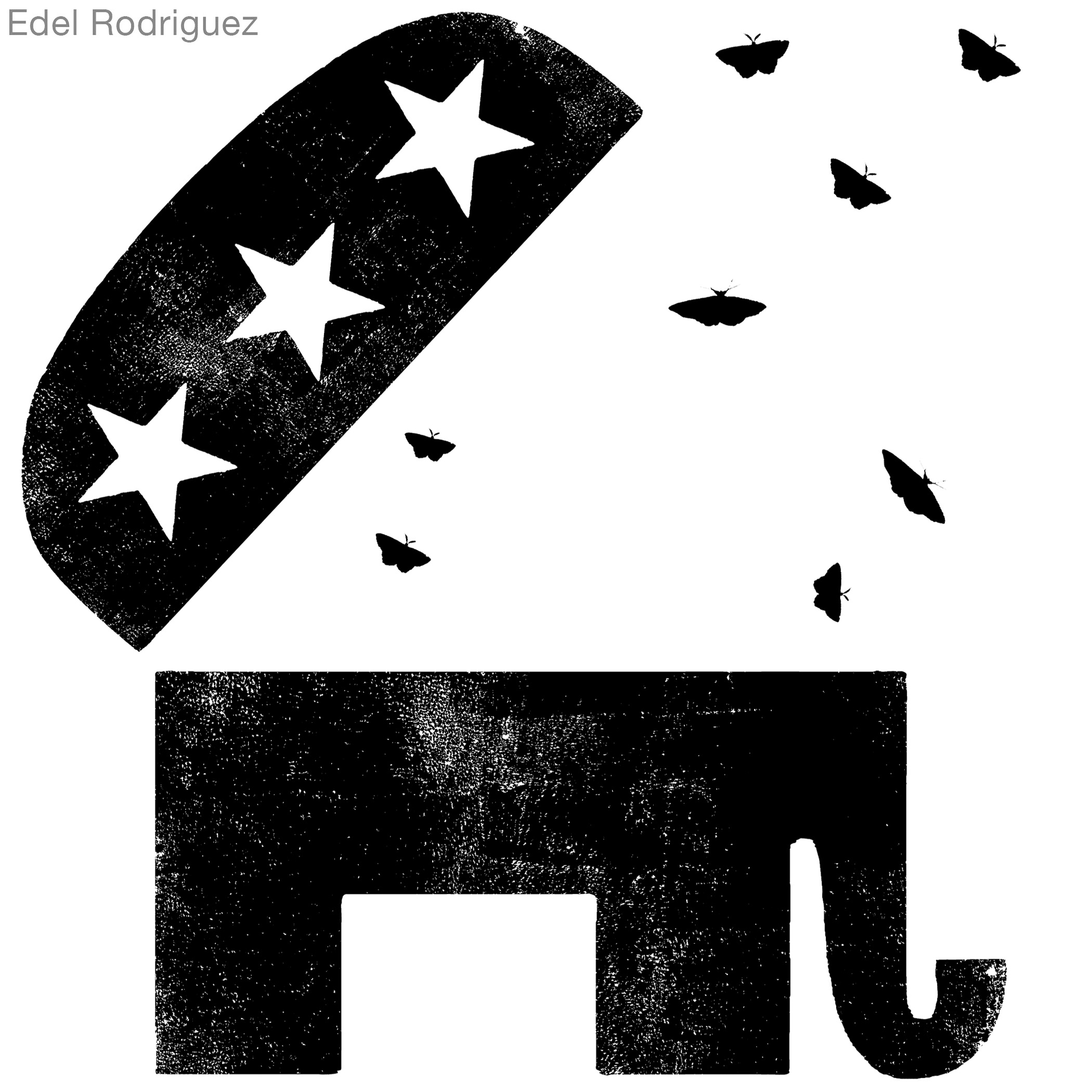 In 1972, I worked in a hard-bitten, racially divided Southeast Texas town 25 miles east of Houston. The racial divide in Crosby, Texas, was U.S. Highway 90. If you were black, you lived south of the highway in Barrett Station.
In 1972, I worked in a hard-bitten, racially divided Southeast Texas town 25 miles east of Houston. The racial divide in Crosby, Texas, was U.S. Highway 90. If you were black, you lived south of the highway in Barrett Station.
White Crosby lived north of the highway. Highway 90 was also an economic dividing line, though refinery jobs on the Houston Ship Channel were creating an African-American middle class in Barrett Station.
To get to Crosby from southeast Houston, I drove east on Highway 90. I have always considered that drive a cautionary tale, a warning about what the country would be like were it governed as Texas was in 1972—by a legislature controlled by a corporate oligarchy hostile to the most basic regulation.
Texas was a one-party state at the time, but the dominant “Tory Democrats” worked from a playbook that Karl Rove inherited when George Bush the elder brought him to Texas to create the state’s modern Republican Party.
Driving from Houston to Crosby was a health risk. Leaving the city, I crossed the Houston Ship Channel, one of the most befouled bodies of water in the nation. Arsenic, cadmium, chromium, copper, lead, mercury, dioxins, and PCBs infused the sludge at the bottom of the channel; an oily patina floated on the surface. At times, the channel would catch on fire and grab the attention of the public, but not the Legislature—nor the Texas Water Quality Board, which was indifferent to the quality of water.
Change would come from outside. The Clean Water Act passed in 1972 by a Democratic majority overriding Richard Nixon’s veto. It would take several years to write the regulations and implement the law, but after 30 years of progress under the CWA, the Ship Channel began to show some signs of life—even schools of fish. No one swims in it today, but it is no longer the toxic and occasionally flammable waterway it was in the 1970s.
Twenty-three miles east of Houston, on Highway 90, I crossed the San Jacinto River. If the wind was blowing from the east, I immediately smelled the French Limited sludge pit. The site was a sand mine until 1966, when the Texas Water Quality Board granted its owners a waste disposal permit, allowing 90 ship channel industries to dump 100,000 barrels of industrial waste a year into the lagoon that remained after the sand was mined out.
By the time I reached Gulf Pump Road, a mile east of the river, the chemical shroud hanging over French Pit had settled into my mouth, my eyes, my sinuses, and my lungs.
After French Limited’s permit to pollute was revoked in 1973, it was again Washington that cleaned up an ecological disaster created under the auspices of a state agency. Before Nixon vetoed the Clean Water Act, he had signed the law that created the Environmental Protection Agency. When French Limited made EPA’s National Priorities (Superfund) List, the soil, water, and industrial sludge on the site was found to include heavy metals, PCBs, oil, phenols, grease, acids, and solvents. The cleanup was paid for by a 90–10 state/federal split.
Today, most of the sludge has been removed, the pit has been capped, and French Limited is on the EPA’s “deleted,” or non-active, list of sites. If West Crosby is not a place where most people would care to live, it bears no resemblance to what was there before the federal government intervened.
Recently, I’ve been reading through 6,088 bills filed by members of the Republican majority in the U.S. House since January 2011. The bills are a roadmap back to 1970—if not earlier. Fortunately, much of the legislation is tied up in committee, where most bills end up at the end of every Congress. Others have been killed by the slim Democratic majority in the Senate. And while the Tea Party Caucus drives the leadership of the Republican House Conference, Eric Cantor and John Boehner grudgingly accept that until January 2013, Barack Obama can still veto bills he considers too extreme.
That could all change if the Republicans win the presidency and both houses of Congress next year, then leverage the power of incumbency and corporate money to build on that majority.
What legislation would a Republican majority send to President Romney for his signature? To answer that question, I turned to the House, where the Republicans hold a substantial majority. I selected Republican bills that have more than 10 cosponsors. While cosponsors do not ensure passage of a bill, they demonstrate support. I avoided predictable political theatrics, such as the 33 House votes cast since January 2001 to dismantle the Affordable Care Act, and individual curiosities, such as New York Congressman Peter King’s obsession with making English our official language.
What turns up is disturbing. Evident in the first 2,500 bills I’ve looked at is a broad assault on the EPA and environmental laws and regulations in general. Anti-environmental bills are the largest single category of cosponsored Republican House bills filed since the GOP House landslide in 2010. Which makes sense, because dismantling environmental protections is where Republican members of Congress can provide the largest savings for their corporate underwriters.
The legislation ranges from the absurd, such as Texas Republican Joe Barton’s cleverly captioned Better Use of Light Bulbs Act, which would do away with federal mandates requiring research and production of energy-efficient lighting (69 cosponsors), to Tennessee Republican Marsha Blackburn’s assault on the Environmental Protection Agency (125 cosponsors).
Blackburn’s Free Industry Act would amend the Clean Air Act to: “(1) exclude from the definition of the term ‘air pollutant’ carbon dioxide, water vapor, methane, nitrous oxide, hydrofluorocarbons, perfluorocarbons, or sulfur hexafluoride; and (2) declare that nothing in the Act shall be treated as authorizing or requiring the regulation of climate change or global warming.”
In brief, prohibit the EPA from acting to slow climate change, which the Roberts Supreme Court ruled a legitimate responsibility of the agency.
Florida Rep. John Mica has filed a Clean Water Cooperative Federalism Act (39 cosponsors), which imposes restrictions on the EPA’s authority to administer regulations promulgated under the Clean Water Act. Mica’s bill allows the EPA administrator to enact or revise a standard for a water pollutant only if the state governments concur that the new standard is necessary. It also requires new EPA regulations to pass a cost-benefit test that takes into account the rule’s impact (as determined by the states) on employment levels and economic activity.
Were Mica’s bill to become law, big petrochemical polluting states (Texas, Louisiana, Mississippi, New Jersey) could exempt themselves from any new EPA measures protecting either ground or surface water.
House Republicans are as averse to taxation as they are to environmental regulation, and they have filed tax (cut) bills with about the same frequency as they’ve filed anti-environmental bills.
Texas Rep. Kevin Brady filed a straightforward bill (217 cosponsors) that would permanently repeal the estate tax, which the Center for Budget and Policy Priorities estimates will add $1.3 trillion to the deficit between 2012 and 2021.
Randy Neugebauer, the Lubbock, Texas, Congressman who shouted “baby killer” at a Democratic member during a 2010 floor debate, filed a bill (31 cosponsors) that would make all the George W. Bush tax cuts permanent, which the Congressional Budget Office estimates will cost $3 trillion over 10 years.
Another Texan, Michael Burgess, is the sponsor of the Freedom Flat Tax Act (10 cosponsors), to replace the progressive income tax with a flat tax that would begin at a rate of 19 percent and after two years be fixed at 17 percent of individual and business income.
Rob Woodall takes a comprehensive approach to taxation. The Georgia Republican’s Fair Tax Act (69 cosponsors) would abolish the Internal Revenue Service, end the income tax, and give the states exclusive authority to collect a 23 percent federal sales tax. If passed, it would provide a huge tax cut for the wealthiest taxpayers while shifting the burden of taxation to the middle class and poor.
The modest banking reform that President Obama signed into law while Democrats controlled both houses of Congress in 2010 is also the target of a large number of bills filed by House Republicans.
One of the strongest measures in the Dodd-Frank Wall Street Reform and Consumer Protection Act is the Consumer Financial Protection Bureau (CFPB), which has a stable funding source and an independent director appointed by the president. It was also one of the most contentious measures in the bill, opposed by Wall Street and by Republicans in both Houses.
Alabama Rep. Spencer Bachus opposed the CFPB in the summer of 2010, while he was the ranking minority member of the House Financial Services Committee. Two months after he became commit- tee chair in January 2011, he introduced the Responsible Consumer Financial Protection Act (35 cosponsors).
Bachus would place the CFPB under the control of a five-member commission and restrict additional funding for the bureau. The organizational structure Bachus proposes mirrors the organizational structure of the Federal Election Commission, an agency rendered impotent by an appointed board incapable of agreement on any specific course of action.
Roe v. Wade, which guarantees a woman’s right to an abortion, was handed down in 1973. Opposition to abortion didn’t become a canonical position among Republicans until the late 1980s, when it became the central organizational principle of the Christian extremists who make up the party’s base.
Forty years after the Roe decision, opposition to abortion is a prerequisite to election in the Republican Party and a recurring theme in Republican legislation. Mike Pence, a Tea Party Republican running for governor of Indiana, is the author of the Title X Abortion Provider Prohibition Act (178 cosponsors), which is carefully crafted to deny any funding to Planned Parenthood.
Georgia Rep. Paul Broun’s Sanctity of Human Life Act (64 cosponsors) defines human life as beginning “at fertilization, cloning, or its functional equivalent,” and confers upon the fertilized egg (in utero, in vitro, or in a theoretical cloning laboratory) the “full legal and constitutional attributes and privileges of personhood.”
Other pre-filed bills address expanded gun rights, restricted rights for union members, mandates to cut off U.S. funding of the United Nations until it retracts a report that is critical of Israel, and the demand that the U.N. refund any U.S. contribution that might have been applied to a project that one member of the House find objectionable.
In July, midway through a decidedly unclever speech, New York Mayor Michael Bloomberg stopped and asked aloud: “Who wrote this shit?” One might look at the legislation produced by these Republicans and ask: “Who voted for this shit?” Are these legislative priorities the priorities of the American electorate?
Yet the critical mass of irresponsible public policy in the Republican House bills raises a more critical question. At what point does a political party become not just an existential threat to the democratic process, but an existential threat to the health and well being of the citizens it is elected to represent?
At least one of the 6,088 bills filed by House Republicans suggests an answer.
Anthropogenic global warming was not an issue in the 1970s. It is undisputed scientific fact today. Yet at the beginning of the hottest year on the planet, when droughts continue to ravage Texas, wildfires directly linked to global warming scorch the American West, and increased sea levels are flooding Alaskan costal villages and Pacific atolls, an obscure Republican Congressman from Missouri filed a bill that would cut off funding to the international agency studying the causes of climate change.
Blaine Luetkemeyer, who was a Missouri state legislator (and family farmer) before he was elected to the House in 2008, addresses climate change with a one-sentence bill: “Notwithstanding any other provision of law, the President may not make contributions on behalf of the United States to the Intergovernmental Panel on Climate Change (IPCC).”
Not only will the government of the world’s greatest democracy refuse to act on man-made climate change, it will actively work to obstruct the work of scientists studying the causes of environmental changes that will affect every living organism on the planet.
Luetkemeyer’s simple bill embodies what the Republican Party has come to represent: hostility toward government, aversion to scientific fact, and an unabashed prostitution that services corporate oligarchs whose value system is defined by profit and loss statements.
And it is all in the public record.
Related reading: The Party of Confrontation







0 Comments